Migration is an incredibly complex and personal experience, often shaped by conflict, trauma, and loss.
For women like Ukrainian counsellor Olga, this journey also intersects with a range of unique challenges tied to personal challenges and specifics of her qualification and profession. That was a place where she transformed individual refugee experience into a powerful tool to help other newcomers.
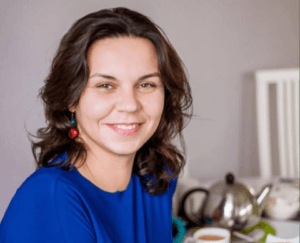 In 2022, after the war broke out, Olga fled her home with her family. Seeking safety for her children, she arrived in Australia and began rebuilding their lives in a new country.
In 2022, after the war broke out, Olga fled her home with her family. Seeking safety for her children, she arrived in Australia and began rebuilding their lives in a new country.
Her journey was not easy, like that of many women refugees, but her new life required and highlighted the importance of an attentive and gentle approach in resettlement services.
Olga said she felt less alone after she began working with her case manager through SSI’s Humanitarian Settlement Program (HSP), which provides tailored services designed to meet the unique needs and strengths of individuals and families resettling in Australia as refugees.
“My case worker, Munira, gave me a lot of attention and time, offering everything I could possibly need. I felt supported in everything I did through the program,” she said.
Olga found that participating in the programs’ orientation sessions not only helped her learn about the new country her family now called home but also helped her to connect with other members of the Ukrainian community in Australia, fostering a better sense of belonging.
“These sessions were incredibly helpful; I still remember the knowledge I gained from them years ago. It was an amazing start for my professional growth in Australia,” she said.
As an experienced counsellor who was waiting for her qualification to be recognised, Olga was happy to facilitate and deliver groups about domestic, sexual, and family violence (DFSV) awareness for the Ukrainian community, where support for newly arrived women was a key focus. She was also grateful to have the opportunity to share her expertise and facilitation skills to support other refugees during the orientation sessions and groups for the families in cultural transition.
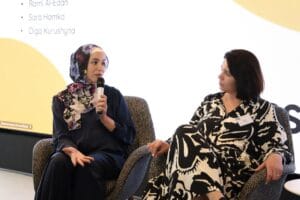 “It’s essential for newly arrived refugees to have a platform where they can address issues and learn how to protect themselves and their families. Everyone deserves to be safe, especially at home, even if it’s very new,” Olga said.
“It’s essential for newly arrived refugees to have a platform where they can address issues and learn how to protect themselves and their families. Everyone deserves to be safe, especially at home, even if it’s very new,” Olga said.
She secured employment opportunities with the support of SSI’s Refugee Employment Support Program, along with her dedication and ability to navigate her networks and community.
Olga worked tirelessly to have her overseas qualification recognised and secure the right to work as a counsellor in Australia. All while studying and managing full responsibility for her family.
Later, she secured a role as an employment facilitator with RESP and found out that SSI’s gender-sensitive services also include wellbeing assessment tools designed to identify potential trauma experiences, such as DFSV, and assess the risks women may face during resettlement. It was important to have those tools in her work. “By identifying such risks early, our specialists can intervene and provide appropriate support and resources,” she said.
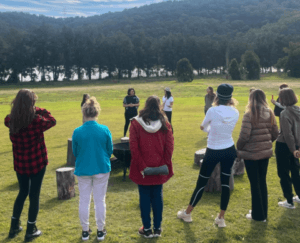 Like many refugee women leading their households, Olga’s economic goal to gain employment was crucial to building her sense of independence. However, despite her extensive background in psychotherapy, she initially struggled to find employment due to her visa status.
Like many refugee women leading their households, Olga’s economic goal to gain employment was crucial to building her sense of independence. However, despite her extensive background in psychotherapy, she initially struggled to find employment due to her visa status.
With support from SSI’s Ignite Small Business Start-ups, Olga’s combined her skills and networks to establish her own business, OK Club, running mindfulness workshops for refugees online and in person, including a Women’s Circle retreat for Ukrainians.
“What I was trying to achieve was difficult, but with the support I had at the time, it was possible,” she said.
In 2024, Olga began working full-time with NSW Service for the Treatment and Rehabilitation of Torture and Trauma Survivors (STARTTS) as a therapeutic counsellor, offering therapeutic support to other people who have navigated forced displacement.
“Such a beautiful place we call our new home. I adore the equality of genders in Australia. It is amazing that as professionals we have programs like Gender Equity Strategy to support our clients. I take a gendered approach to migration and resettlement, ensuring everyone receives the support needed to thrive, rebuild their lives, and contribute meaningfully.” Learn more.
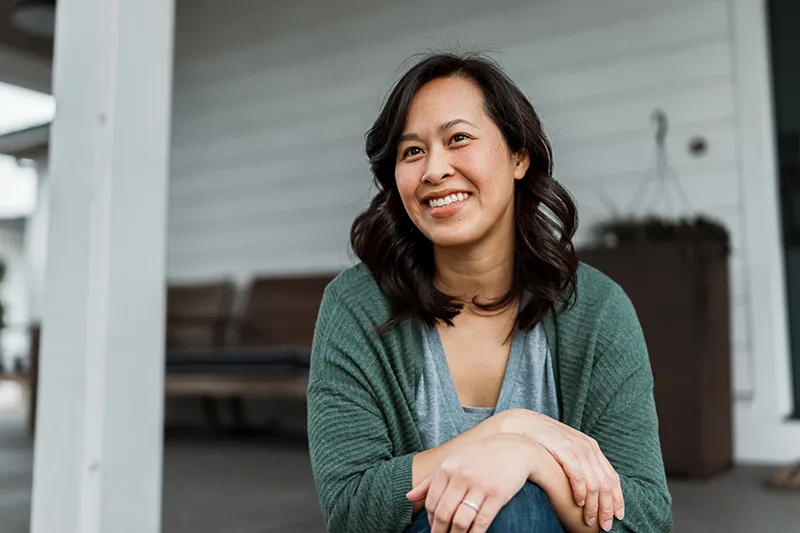
Participating in The Rights Path project as a lived experience consultant helped Anh gain a better understanding of her own rights and the steps to take when facing issues with NDIS services. Her experience will also empower others in the community who are experiencing similar challenges.
Anh’s experience raising her concerns about NDIS supports and services
“According to my daughter’s [NDIS] plan, she was supposed to receive care every Monday. However, following a public holiday, she missed out on the service and was later issued an invoice for that day,” said Anh.
“When I reached out to the provider two weeks later, I couldn’t reach the support coordinator. I contacted the plan manager for help, who assisted me in drafting an email to complain about the overpayment.”
When Anh filed her first complaint, the provider initially claimed there was no proof of a cancellation due to the public holiday. Anh then provided the cancellation email she had sent, but the provider responded by stating that a two-week notice was required. Anh confirmed her cancellation email had met the required notice period. However, instead of addressing the issue, the provider changed the service day to Wednesday and sent a new invoice.
Despite her efforts, the provider did not resolve the issue, prompting Anh to file a second complaint and eventually switch to a different provider due to the lack of resolution.
How participating in The Rights Path project helped Anh understand her rights and the need to complain
Anh found that participating in the project helped her understand the importance of documentation in these situations.
“The steps for [making a complaint that] I learned in the project helped me understand how to complain. I knew what I could do to ensure I am not being overcharged,” said Anh.
“The workshops provided clear guidance on how to navigate such issues.”
Anh is now confident to advocate for herself.
How The Rights Path resources will help others
- The resources we’ve created are a helpful guide for anyone facing similar issues.
- The videos encourage people to speak up and highlight the importance of advocacy and self-advocacy in the NDIS system.
- They empower individuals to understand their rights and the steps to take when problems arise.
- Even if someone doesn’t have a support coordinator or can’t reach one, the simple five-step guide in the fact sheet will help them advocate for themselves.
- It’s essential that these resources are available in community languages so language barriers don’t stop people from understanding how to file a complaint.
- The community education workshops will also be a great help for those who need additional support.
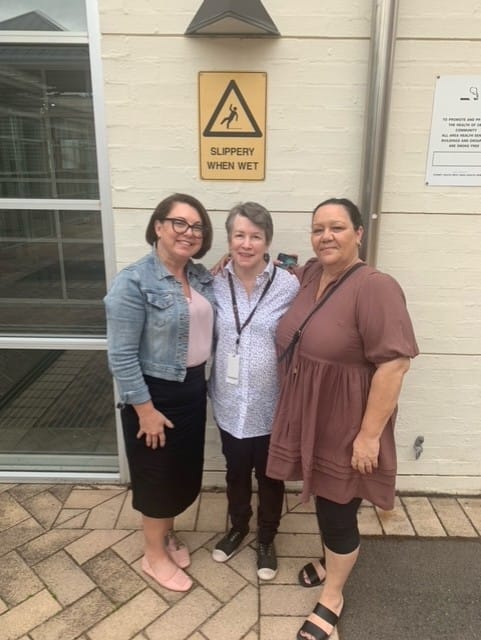
At SSI, we are committed to providing inclusive, culturally responsive disability services that support Aboriginal and Torres Strait Islander communities.
We’re actively engaging with First Nations people to ensure they receive the services and supports they need. From a history of working closely with First Nations communities in programs such as Ability Links, to a firm commitment to reconciliation (which currently involves a detailed review and expansion of our 2022 Reconciliation Action Plan), to a dedicated team of Aboriginal NDIS local area coordinators (LACs).
Aboriginal LACs Kylie Natividad (left) and Kerin Carpenter (right) with Aunty Robin Young (middle)
Building stronger communities through local area coordination
Our local area coordination program links people with disability to the right supports and services. A key aspect of this effort is community-based connection desks, which have been established in the communities we serve, including one held twice a month in Bowral. It is specially tailored to First Nations people in the Wingecarribee Council area and provides an accessible, welcoming space where community members can have their questions about the NDIS answered.
Community connection proves key to success
Kerin and Kylie, two of our Aboriginal local area coordinators, attend this connection desk, sharing yarns and their expertise of the scheme with prospective and current participants. Their work helps connect members of the community to vital supports, including peer networks and healthcare services. They also help build capacity for people to navigate the NDIS with confidence, clearing up doubts about the scheme.
Aunty Robin Young, a representative of Bowral Community Mental Health Services praised Kerin and Kylie for their dedication, cultural sensitivity, and enthusiasm.
“The health and wellbeing of those regularly cared for by the girls has greatly improved,” said Aunty Robin. She highlights the importance of following six common values that encompass the First Nations experience:
- Spirit and integrity
- Reciprocity (sharing)
- Respect
- Equality
- Survival and protection
- Responsibility
Kerin and Kylie uphold these values in their work, ensuring that each person’s unique needs are addressed, even when they share the same diagnosis or disability.
This personalisation of care is what Aunty Robin feels has made such a difference.
“Members of the community have developed the skills, knowledge, and broader strategies to improve their health,” she said.
NDIS enquiries handled with care
For those who prefer not to attend in-person events, SSI also offers phone consultations with our Aboriginal LACs. These calls can be life-changing for people who feel less comfortable attending in-person events, or have quick questions that don’t need a face-to-face discussion.
“[This service] has benefitted the communities greatly with their emotional wellbeing and their engagement with the health service,” said Aunty Robin.
Tailored disability services for First Nations communities
It’s clear that disability services must go beyond major metropolitan areas to reach rural and remote communities. Also, these services must be carefully tailored to the unique needs of minority groups, especially those at risk of neglect and abuse, such as First Nations people.
SSI’s Aboriginal LACs continue to build strong partnerships with local organisations, networks and groups to deliver personalised, culturally sensitive support that is not only knowledgeable, but approachable. We’re committed to ensuring that every individual, regardless of their background or location, has access to the support they need.
Learn more about SSI’s disability services
Learn about SSI’s range of disability services on our website. You can contact your local area coordination team at:
Phone: 1800 960 975
Email: ssilac@ndis.gov.au


How maternity care is a gateway to safety for vulnerable women
Rashida’s* days are busy. Her vital work as a maternity support officer assists some of the community’s most vulnerable women. For many refugees and culturally diverse women experiencing domestic violence, the path to safety often begins with a trusted first-line responder like Rashida.
“Most of the women I support have experienced some form of domestic violence, whether it’s emotional, financial, or physical abuse,” says Rashida.
With dual degrees in Human Services and Arabic linguistics, Rashida brings a unique combination of professional expertise and cultural understanding to her role.
While the program’s primary focus is maternal health, it has become an unexpected but crucial gateway for domestic violence support.
Building trust takes time
“It’s not something that happens in the first meeting,” Rashida explains. “They don’t immediately talk about their personal life. Over time, they feel comfortable with me and start opening up about their situation. It takes time to build that trust.”
This gradual trust-building proves crucial, as many women from Culturally and Linguistically Diverse (CaLD) backgrounds face multiple barriers to accessing mainstream domestic violence support services. Language difficulties, cultural stigma, and limited awareness of available resources can all prevent women from seeking help.
“Sometimes they think this is the norm,” Rashida reveals. “They say, ‘I saw my mom, I saw my sister growing up like that.’ Part of our role is to reassure them that this is not okay and break the stigma that’s been there for years.”
Navigating the system
“It’s really hard for the women to navigate the health system,” she explains. “My role is to break down barriers by providing information and resources, explaining their rights, and helping them make their way through the system and services.”
Despite being thrust into this crucial support role, many first-line responders lack formal training in critical areas such as trauma-informed care, cultural competency, and domestic violence risk assessments. This gap can mean the difference between a woman seeking help or remaining in danger.
Rashida recalls a client who took two years to speak up about her domestic violence experience.
“After the client’s baby was delivered and she exited the program, she kept in touch with me and disclosed what was happening to her 12 months later.”
“With better training in recognising signs and building trust, we could potentially help women reach safety much sooner,” Rashida says.
Investment is crucial
The impact of inadequate support in this area ripples through communities. Without properly trained, often bi-lingual first-line responders, women are falling through the cracks.
Trauma-informed training, cultural competency programs and family, domestic and sexual violence risk assessment training and in-language resources and supports are just some of the areas that could be bolstered to support first-line responders who are receiving disclosures.
“Training in trauma-informed care and cultural competency would be invaluable for first-line responders,” Rashida says. “Understanding how to handle disclosures sensitively and how trauma impacts behaviour could significantly improve our ability to provide meaningful support”.
Despite the complexities of Rashida’s role, she finds deep fulfilment in her work.
“I like to see women in my care become more independent, to thrive,” she says. “I know how it feels coming to a new country, new environment, new culture, new language. To see them thrive, that’s my goal. That’s what keeps me going.”
Rashida was interviewed as part of SSI’s support of 16 Days of Activism Against Gender-based Violence. This year, we’re calling on more investment for first-line responders like Rashida to be better equipped to support women experiencing family, domestic and sexual violence.
*Name/s changed to protect privacy and safety.
Do you need support?
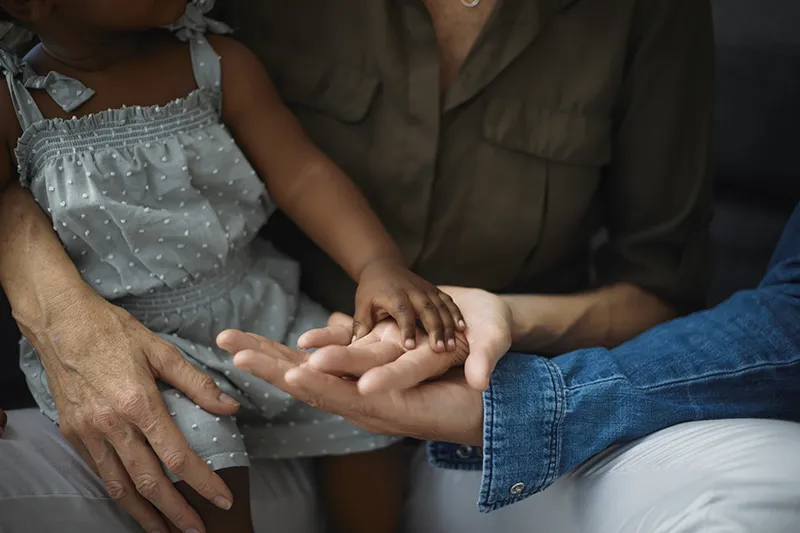
Community workers filling the gaps when it comes to women experiencing domestic violence
Sara* is a dedicated community worker who has spent much of her young adult life in various social work roles. Recently, her own cultural background has proven life-changing for some of the female clients in her care – many of whom are experiencing domestic violence and need someone to talk to in-language.
“They don’t come asking for support directly,” she says. “Someone might talk to you about their situation at home seeking support, and then, through the stories they’ve shared with me, I realise they’re experiencing abuse.”
In the three short months Sara has been in her new role helping newly arrived families settle, Sara says that two to three of her five family intakes have already indicated domestic violence, identifying a major gap in support for these women.
New to Australia, women are often unfamiliar with their legal rights, the process of reporting violence, and the support systems available to them. Meeting someone who speaks their language can make all the difference.
Trust established through shared background
As part of Sara’s role, she visits families in their own homes. She recognises that this safe environment encourages them to share their experiences.
“They feel secure enough to open up and share what they’re going through,” she says. “It’s not out in public or an institution where they might feel observed.”
“Speaking the same language helps them feel at ease and it also allows me to build a stronger relationship with them,” she says.
Sara recalls a client who recently shared that she was being physically abused by her husband.
“She saw me as someone who shared her background and spoke the same language,” Sara says. “She asked, ‘Is there any way you can support me? You’re my sister. You understand how to help me.’”
Sara says many of the women who come to her and her colleagues aren’t ready to make a formal report, yet they are in crisis.
“They tell me because they want to see how I can support and protect them within my capacity without opening a formal case,” she says.
“Fearing the repercussions, they wonder, ‘If I involve someone else, will that put me at risk? Now I need to provide this paperwork and documentation. Why is this needed?” Sara says. “The process of getting mainstream support often becomes too overwhelming.”
“Instead, they want to rely on me alone for help. However, my capacity is limited. I’m not a specialist support worker, and I can’t address their immediate safety needs without formal training,” she says.
Despite this, Sara emphasises her moral responsibility around receiving disclosures.
“I have a duty of care. I must do everything I can to support a woman and her children if she has disclosed or is in crisis.”
The bias and barriers of language
For the women who do try to access mainstream services, Sara points out the challenges with on call interpreters one of many barriers impacting CALD women who are experiencing domestic violence.
“One moment, a woman might be in the middle of disclosing her experiences through an on-call interpreter and, the next minute, the line disconnects. She then faces a long wait to be assigned another interpreter. You can imagine the toll that takes.”
Sara also recalls an instance where she witnessed a male interpreter misinterpret her female client’s disclosure of physical abuse, distorting her words with an obvious bias. She notes that this situation is common.
“We need better training for interpreters. They need to be trauma-informed and specialised in domestic violence to better support women accessing these services.”
The need for greater investment
Sara’s role extends far beyond traditional community support. She acts as a crucial bridge between the service provider and her vulnerable clients.
While she continues to go beyond her paid role to potentially save the lives of the women who are falling through the cracks, Sara’s ability to perform her job is being impacted.
“When women are at risk, I have to prioritise supporting them, which often requires me to stop what I’m doing and affects my overall capacity,” she says.
“We need more people like me who are supporting these women. We need to have greater flexibility in our roles and must expand the scope of our community support services.”
Sara was interviewed as part of SSI’s support of 16 Days of Activism Against Gender-based Violence. This year, we’re calling on more investment for first-line responders like Sara to be better equipped to support women experiencing family, domestic and sexual violence.
*Name/s changed to protect privacy and safety.
Do you need support?

When help hurts: The impact of inadequate first-line responder training on women's safety
A single mishandled disclosure of domestic violence can silence a woman forever, says Adara* a specialist nurse supporting refugee communities. Her recent experiences highlight the urgent need for better-trained first-line responders, like case workers, health professionals and educators who are working with refugee women experiencing domestic violence.
“The amount of courage it takes to even open up to one person is enormous,” says Adara, who has spent years working with newly arrived refugees.
“When that disclosure is met with unhelpful responses like ‘don’t break up your family,’ it can be devastating. That person might never speak up again,” she says.
The importance of that first disclosure moment has become increasingly apparent through her work. A recent case highlighted the systemic failures when a refugee woman, after gathering the courage to report domestic violence, was discouraged from seeking help – a response Adara describes as “infuriating.”
“Someone takes the immense bravery to speak up, and then gets discouraged from taking steps necessary for their own safety,” she says. “Had people received adequate support and training, that person would not have said what they said.”
Cultural understanding from one woman to another
Trust and cultural understanding emerge as crucial factors in supporting women experiencing domestic violence. Adara says that clients are more likely to disclose abuse to someone who shares their language and cultural background, and who is a woman.
“It resonates with them when the worker looks like them, talks like them, and has similar lived experiences,” she explains.
Adara reflects on her own cultural background and her journey to Australia with her family in the late nineties. She recalls her younger brother falling sick and the unique challenges the family faced, including the lack of in-language support and resources to help educate her family on his illness and how to support him.
While this experience inevitably led Adara into nursing, it also veered her into her specialist role as a refugee nurse – to be a bridge between the complexities of mainstream services.
“I believe this woman spoke up again to my colleague because it probably resonated with her that my colleague looks like her, talks like her and has got the same life experiences as her. She is so brave for speaking up again, and now we can take the right steps to support her.”
Barriers to mainstream support
Beyond language difficulties and cultural differences, many women are simply unaware of available support services or their rights.
“They definitely don’t know what’s available to them. They definitely don’t trust anybody or anything,” she notes.
“But even if you take ‘refugee’ out of the context, it could be the same for any domestic violence victim. Sometimes they do know the services that are available to them, but they are afraid to reach out. Abuse chips away at a person’s ability to do things for themselves.”
Mandatory domestic violence response training for all frontline workers, increased investment in bicultural support workers and better coordination between refugee services and domestic violence support agencies should be a start.
“At the very least, if you don’t have the answers, don’t say the wrong thing,” she emphasises. “Say ‘I’m going to connect you with someone who can help’ and find the right information.”
Her experiences underscore a critical message: the first response to a domestic violence disclosure can make the difference between a woman seeking further help or returning to silence.
The need for change is urgent. As refugee communities continue to grow in regional areas, the demand for culturally appropriate domestic violence support services also increases. Training and supporting first-line responders, particularly those from refugee backgrounds themselves, could provide the crucial link between vulnerable women and the help they need.
Do you need support?
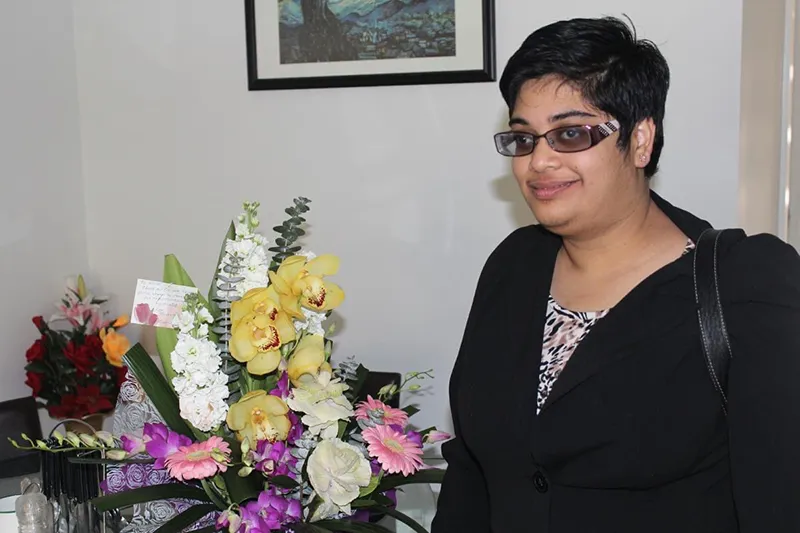
In March, SSI took another step toward creating a more inclusive workplace by starting a disability reference group. This group is designed to make sure that people with disabilities can share their experiences and help shape workplace policies. Operating under the community development branch of SSI’s local area coordination services, the group focuses on building trust and connecting with hard-to-reach communities.
The main goal of the group is to address the specific challenges faced by people with disabilities, especially those from culturally and linguistically diverse (CALD) backgrounds. These individuals often face multiple barriers when trying to get support and navigate different systems.
Enhancing accessibility in the workplace
A key member of the reference group is Nidhi Shekaran, who was born in India and lives with cerebral palsy and vision impairment. Nidhi is passionate about advocating for positive changes that benefit others like her. One of her priorities is to tackle transportation issues that many people with disabilities experience. She supports flexible work options, including effective work-from-home arrangements and necessary adjustments for employees who need to travel.
“The changes that we implement now will always be there,” said Nidhi.
“What we do is very future-focused.”
With the help of her fellow group members, Nidhi is working to make workplace documents and materials more accessible. She understands that many formats are not easy for people with vision impairments to use.
“If the experience of a person with disability is valued, then they themselves feel valued,” she said.
Nidhi believes that while inclusive recruitment is important, it’s just one part of the solution. It’s equally vital to ensure that everyone feels truly included and supported at work.
Fostering cultural exchange and collaboration
Nidhi’s involvement in SSI’s reference group shows her commitment to community engagement. Since 2005, she has participated in the Multicultural Disability Advocacy Association’s Community Voices initiative and was nominated for Blind Australian of the Year in 2023.
The reference group’s focus on CALD communities provides a valuable space for cultural exchange.
“You learn from each other, and you have a good relationship with everyone because you have a collective goal,” Nidhi said.
Nidhi hopes that initiatives like the disability reference group will lead to significant outcomes driven by people with disability themselves.
“It comes back to the mantra of ‘nothing about us, without us’,” she said.
Challenging stereotypes and building awareness
Together, Nidhi, the reference group, and SSI aim to challenge stereotypes around culture and disability. By increasing awareness of the barriers faced by CALD people with disabilities, the disability reference group aims to develop effective strategies to overcome these challenges.
The reference group will meet every six weeks until June 2025, and its members are excited about the changes they can create over the next year.
Learn about SSI’s range of disability services on our website. You can contact our local area coordination team at:
Phone: 1800 960 975
Email: ssilac@ndis.gov.au
SSI was one of the first NGOs in Australia to achieve Disability Confident Recruiter status through Australian Disability Network. Read more about SSI’s commitments to diversity and inclusion.
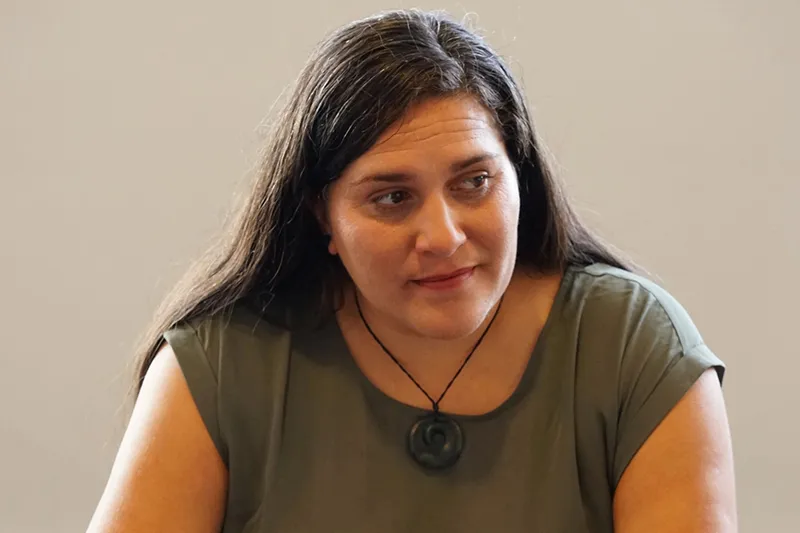
Alana Beattie, a 38-year-old woman living in the Campbelltown area of Sydney, has made remarkable progress in her personal life over the past six years with the help of her local area coordinator (LAC).
Before local area coordination support
Alana’s condition, a rare genetic disorder known as pseudohypoparathyroidism, means that her mobility is severely affected, as her muscles tend to become stiff and cramp up. General movement, and interactions with public transport above all, can become complicated and dangerous, should her balance be compromised.
“I need supervision when I travel due to my condition,” Alana said. She mentions that this need for assistance is compounded by her obstructive sleep apnea, which can lead to health risks if she falls asleep in uncomfortable positions.
Alana’s supervision needs were exacerbated when she found herself in an emergency housing situation and in desperate need of a more stable option. For several years, Alana was informally supported by her parents, both in terms of accommodation and decision-making. When those supports broke down earlier this year, Alana was quickly left fearing for her living situation and running out of options.
Getting help from an SSI local area coordinator
With the help of her LAC, she was able to move into a short-term accommodation and assistance (STA) option, and after gathering enough evidence to meet the requirements, was finally approved to progress to supported independent living (SIL) accommodation in June.
“I was feeling really anxious because my housing situation was uncertain,” says Alana.
“But I was excited to finally make the move [to SIL] so that I could be around other people and make new friends.”
The social aspect of her accommodation is a crucial reason why Alana feels so grateful for her relationship with her LAC.
“I’m in a really good position to move forward and begin healing,” she said.
The steadiness of SIL accommodation allows Alana to focus on her hobbies, which includes maintaining several fulfilling pen pal relationships with friends overseas. She’s also an avid West Tigers fan and enjoys travelling with her ‘girls group’ when she can.
Without the support of an SSI local area coordinator on behalf of the National Disability Insurance Scheme (NDIS), it’s possible that Alana would never have been able to secure her current living arrangement and live life as comfortably and meaningfully as she can now.
Alana sees a bright future for herself and is already setting new goals with her LAC.
“I want to keep healthy and motivated,” she said, indicating that continuing to participate in her wellness program will be the key to staying on top of her condition.
With all the recent changes going on in her life, Alana also wants to learn to be more adaptable. With the personalised sense of care and guidance an LAC can offer, Alana will no doubt be able to surmount any obstacle and celebrate every accomplishment that comes her way.
Learn about SSI’s range of disability services on our website. You can contact our local area coordination team at:
Phone: 1800 960 975
Email: ssilac@ndis.gov.au
Imagine being told you need a life-changing medical procedure—but in a language you don’t fully understand. This is the confronting reality for many people in Australia today who face barriers accessing vital information in English.
We all deserve to understand what’s happening in our lives, to know our options, and to make choices based on clear information. The right to receive information in a language we understand is fundamental, no matter the language we speak.
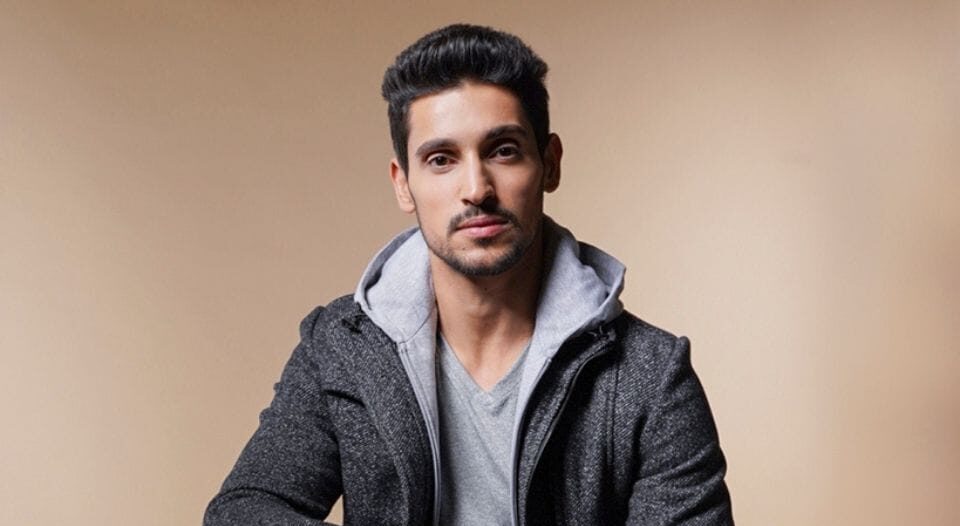
Life-changing service
For Nasser, a professional interpreter from Jordan, this isn’t just about words. “Interpreting can be a life-changing service, especially for newly arrived migrants navigating healthcare or legal systems. We’re not just translating—we’re supporting people’s rights to access services in a language they understand.”
Drawn to languages through a love of English movies and music, Nasser turned his passion into a profession, completing a degree in interpreting and translating before moving to Australia in 2015.
“Honestly, if I hadn’t studied translation and interpreting, I wouldn’t be here in Australia today,” Nasser shared. “After finishing my bachelor’s degree in Jordan, I felt I needed to improve my spoken English to be a better interpreter. This brought me to Sydney to immerse myself in the language and pursue a master’s degree at Western Sydney University. It wasn’t easy balancing part-time study and work, but it opened doors to my career as an interpreter.”
Today, Nasser works as a professional interpreter in courts, police stations, schools, and medical clinics. His clients are Arabic speakers from diverse backgrounds, many of whom rely on his skills to navigate life-altering situations.
He highlighted the unique obstacles interpreters often face in these settings. One of the biggest challenges is when service providers aren’t fully prepared for an interpreter’s presence.
“At medical clinics, sometimes the doctor doesn’t expect me at the appointment. There might not be a chair set up, which leaves me feeling like I’m not part of the conversation. But having a properly set up space is important for everyone—it ensures better communication for the patient.”
Another challenge Nasser often faces is lack of a proper briefing beforehand. “A quick briefing with the service provider makes a huge difference. It helps me understand the context, know who’s involved, and makes for a smoother session. Without it, there can be confusion, especially if there are multiple people involved or if the matter is particularly complex.”
Despite Australia being known for having one of the best developed interpreter systems in the world, studies within the country have found that although access to professional interpreters is available in many sectors, they are often underutilised.
“It’s very important to have a professional interpreter instead of a family member or friend, as many of us don’t want to share private information with relatives or friends especially when it comes to matters like health. Professional interpreters are also bound by a code of ethics, which means we are always confidential and impartial,” Nasser reflected.
How best to work with interpreters
Professional interpreters are much more than a bridge between languages—they’re a lifeline for people navigating complex systems in a new country. With the right training, organisations can create safer, more inclusive environments for all.
We recently developed an e-learning course designed to help organisations make the most of professional interpreters like Nasser. With the right training, they can ensure every person, no matter what language they speak, has equal access to respectful, trauma-informed, and culturally responsive services.
You can trial our new online course here or speak to our Diversity Training team by calling us on 02 8799 6700 or via email diversitytraining@ssi.org.au.
